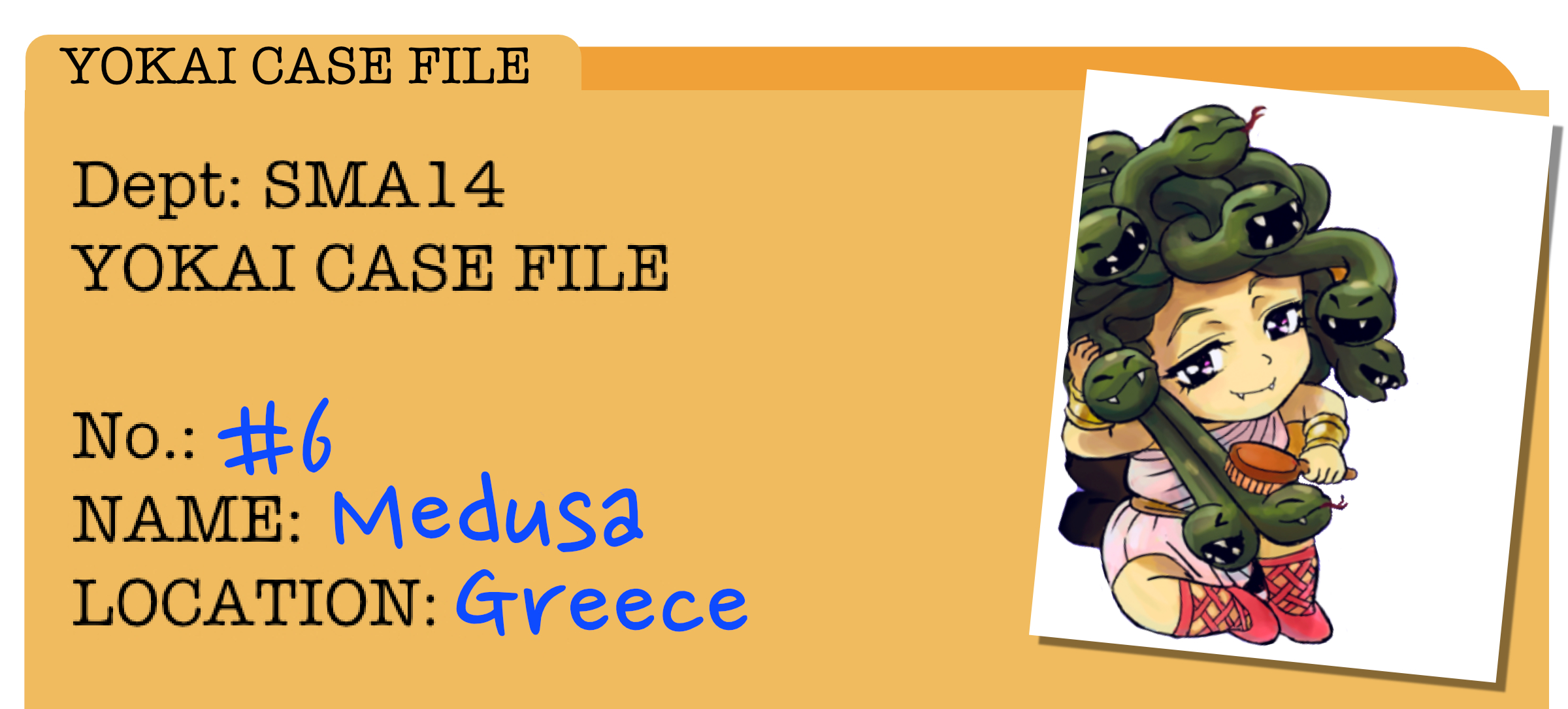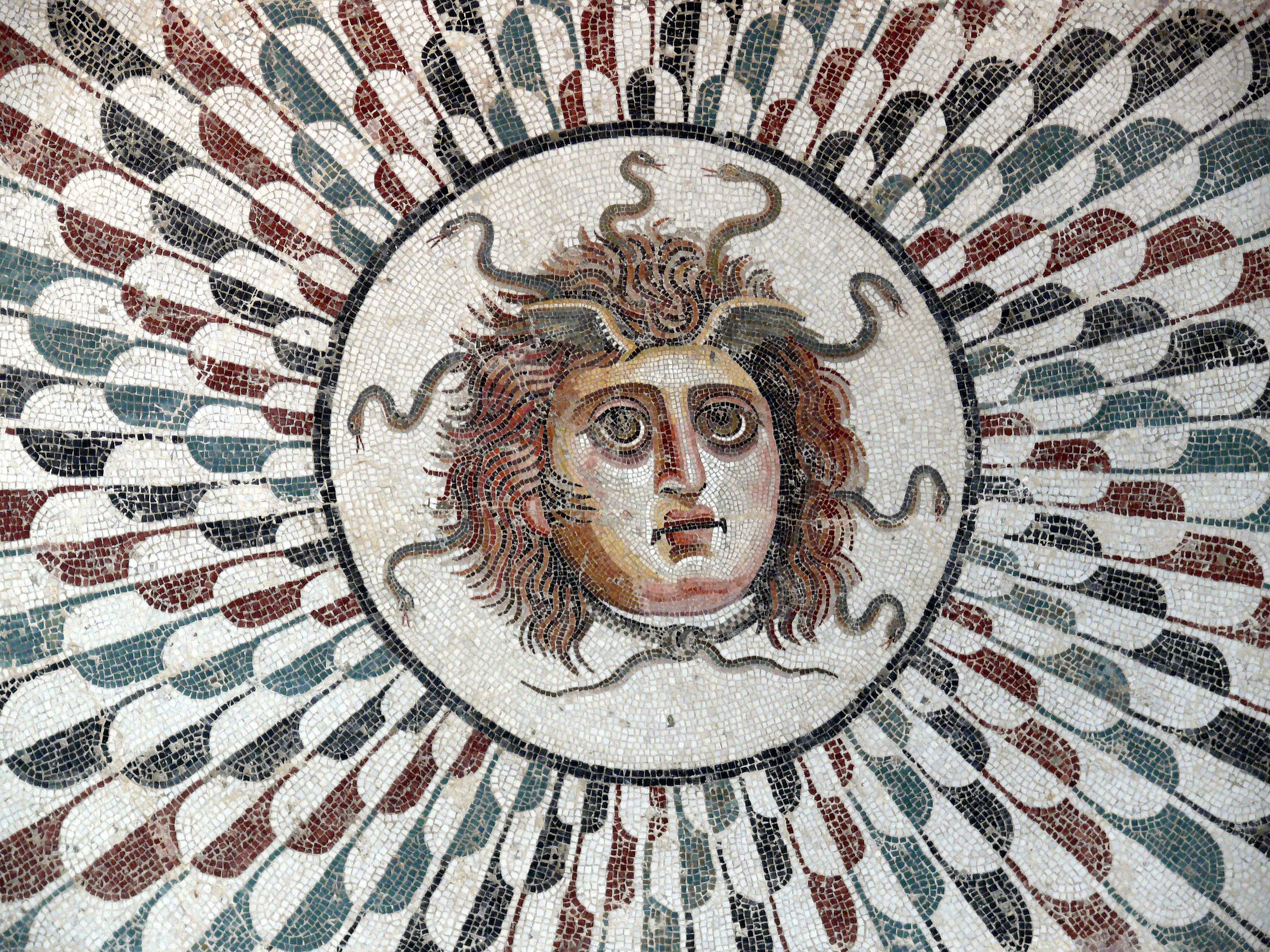
“Creatures, Sprits and Monsters” from YOUR folklore is the theme for SMA14. But how do these mysterious creatures operate? What are their powers? What food do they eat?? Over the coming weeks and months throughout the entry period, we will publish a series of “Yokai Case Files” on several mythical creatures from around the world to help inspire your manga.
From the depths of primordial mythology comes a symbol of female rage! Medusa is perhaps one of the most recognized creatures from Myth, but how, and more importantly, why did our snaked haired “harridan” become a fierce representation of female empowerment? Why is Medusa as important today as she was in Classical Antiquity? Read on, if you dare…

Name:
Medusa (“guardian, protectress”)
Other names:
Gorgo
Country of Origin:
Ancient Greece
Dwelling:
Temple of Athena
Appearance:
Terrifying face adorned with a serpentine hair
Favorite Food:
Rock cakes?
Power:
Can turn any who look upon her to stone
Weakness:
Mirrors
About:
Medusa was one of three siblings, along with Stheno, and Euryale, who were collectively known as the Gorgon Sisters. The daughters of the primeval Greek gods/chthonic monsters Phorcys and Ceto, these three sassy sisters knew how to scare from an early age!
Medusa’s origin story, according to the Roman poet Ovid is not pleasant and what today would most definitely be called extreme “victim blaming”…
Medusa was once a stunningly beautiful maiden who sent many a young man into a jealous rage, the god Poseidon included! In fact, the mighty ocean god would not take “no” for an answer, so when our innocent heroine was praying to the goddess Athena in her temple, the despicable divine deviant proceeded to rape Medusa on the alter of his Olympian niece. How did the goddess of wisdom react to this unforgivable crime? She blamed Medusa! In a fit of rage at having her temple defiled, Athena turned Medusa’s beautiful hair into a den of snakes and her face into such a terrible visage, it turned all who looked upon it to stone!
Perhaps the most famous story involving Medusa is her demise at the hands of Perseus. The son of the mightiest god, Zeus, and the mortal princess Danaë, Perseus was tasked with bringing back the head of our tragic heroine in a seemingly impossible mission aimed at cutting the young man’s life short (King Polydectes wanted him out of the way so he could marry his Mum)! Armed with gifts from the gods, the plucky young prince achieved his goal by tricking Medusa into looking at her own reflection in the polished shield of Athena.
Medusa’s legacy has endured the test the time. Often seen as a representation of female rage, Medusa has been adopted as a feminist symbol in later years. Indeed, with a story drenched in violence and injustice at the hands of a domineering and powerful man, her story perfectly encapsulates the #metoo movement of the 21st Century and the rage and fury it has justifiably unleashed into society.























